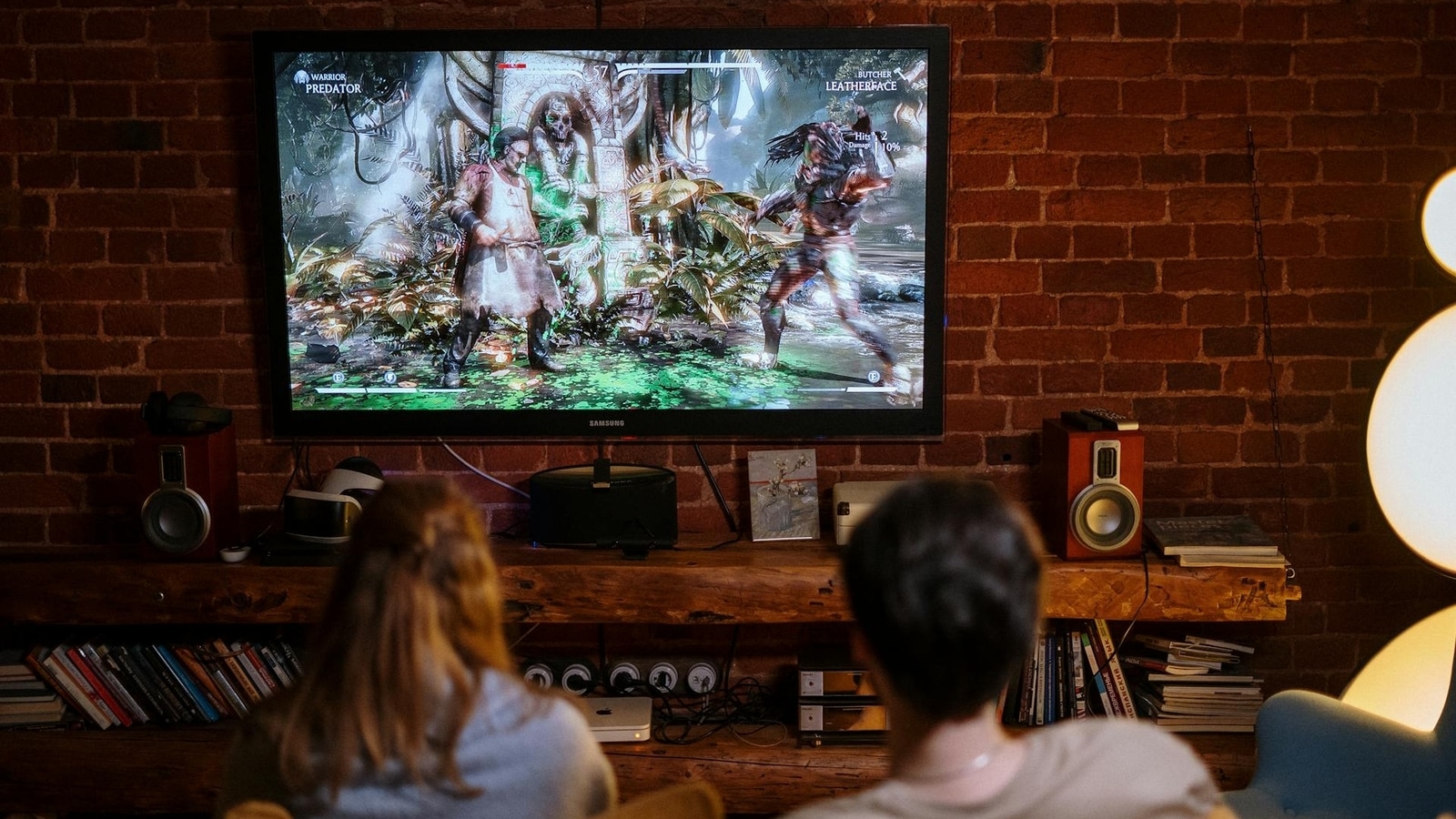‘Nanpakal Nerathu Mayakkam’
The new film by Lijo Jose Pellissery — the director of genre-bending gems like “Angamaly Diaries” and “Jallikattu” — is a quotidian slice of Kafka: a gentle, keenly observed comedy in which a man wakes up after some slumber not as a different creature, but simply as another man, with another name, family and memories. The curmudgeonly James (Mammootty), who hails from the South Indian state of Kerala, is on a pilgrimage through the neighboring state of Tamil Nadu with a large group of relatives and friends when the miracle happens. He awakens from a nap, stops the bus and calmly walks into the nearby village, believing he is Sundaram, the long-missing patriarch of a local family. His troupe, whom he no longer recognizes, chases him in chagrin; the villagers watch in amazement as he walks around nonchalantly, fluent in Tamil and in the intimate goings-on of the town.
Is James pretending, ill, or is there some cosmic magic afoot? “Nanpakal Nerathu Mayakkam” never fully resolves its mysteries, instead using them as a window into the little things that make us familiar and strange to one another. The visitors and the villagers fumble through linguistic mix-ups, their tongues similar yet different. James’s newly bereft wife and Sundaram’s long-bereft one develop an unspoken bond, rooted in an understanding of patriarchy’s universal grasp. And in a running gag, the old Tamil movies playing on a blind woman’s T.V. echo throughout the village, ironically inflecting Pellissery’s deadpan drama with their high-strung melodramatics, and lovingly pastiching a culture fed on stories that belie belief.
‘Jumbo’
“Woman has sex with a theme park ride” might sound like something spat out by a glitching A.I. plot generator or dug up from bizarre, unsavory corners of the internet. Yet not only is this a real scene in the French movie “Jumbo,” it’s also a gorgeous cinematic spectacle of grease, metal and skin, directed with punkish imagination by Zoé Wittock. Starring a sensitive Noémie Merlant as a neurodivergent young woman, “Jumbo” takes its heroine, Jeanne, and her unusual affinity for machines seriously, refusing pat, restrictive notions of what counts as normal.
Jeanne lives with her feisty single mother in a nondescript suburb and works at the local amusement park. Her time alone with the rides, which she cleans and oils lovingly, is her refuge from bullying teens and her lecherous boss. When a new spinning attraction arrives at the park, something stirs inside Jeanne — and if you think she’s deluded, wait till you see the contraption reciprocate with flashing lights and whooshing limbs. Though shot through with whimsy, “Jumbo” shines because of its sincere faith in Jeanne’s experience, and the generosity with which it invites us to see the world through her curious eyes.
‘A Human Position’
This Norwegian drama unfolds as a series of exquisite, postcard-like images from Alesund, a port town made up of cobblestone streets, perfectly angled houses and cool blue skies. When the protagonist, a young journalist named Asta (Amalie Ibsen Jensen), enters these tableaux, her palpable discontent feels like an aberration in such a pristine setting.
What beauty, order and tidiness conceal under their glossy surfaces is the premise of Anders Emblem’s meditative film. Asta lives with her girlfriend in a sunlit house and has just taken up a summer job at the local paper. Something is amiss in her life, and whether the cause is personal or existential (or both) is unclear, but her melancholy sharpens into something more urgent when she stumbles upon the story of an immigrant worker who was deported because of a bureaucratic blunder. Asta starts digging into this case, though her investigation neither leads to any dramatic revelations nor changes the film’s placid rhythms. That tonal contrast — between the comfortable, steady routines of Asta’s life and the precarity of the deportee’s story — is where the film packs an emotional wallop, quietly indicting the ways in which a society that prides itself on its prosperity and harmony becomes blind to its failings.
‘Domestique’
Stream it on Tubi and Amazon Prime Video.
A horror movie set almost entirely within the walls of a couple’s apartment, “Domestique,” directed by the Czech filmmaker Adam Sedlak, observes the asphyxiating intersection of two extreme body regulation routines. Roman (Jiri Konvalinka), a professional cyclist, is impatient to get back to competing form after experiencing an injury; Charlotte (Tereza Hofova), his wife, is desperate to get pregnant. He puts in long hours on his stationary bike and obsessively measures his calories, while she rigorously logs her fertility cycle in a diary and tries to modulate every aspect of their lifestyles to improve her chances of conception.
As they escalate their efforts in dangerous ways, Sedlak mirrors their blinkered, single-minded perspectives in the film’s visuals. Their home is a flat, murky-gray background for their stilted confrontations and clockwork-like routines. The camera zooms in and out of close-ups when they’re together, emphasizing their isolation even in shared spaces. The simultaneous banality and extremity of their situations is the real terror here: The film’s crescendo is inevitable and yet shocking for its reminder of the harm we can wage on ourselves and each other in the name of self-improvement.
‘The Show’
With a fevered script by the comic-book auteur Alan Moore — he of the “Watchmen” and “V for Vendetta” fame — this madcap caper, directed by Mitch Jenkins, takes classic British detective noir and drags it through a Lynchian looking class. Tom Burke plays the shifty protagonist whose name might be Steve or Bob or Fletcher, and who might be a concerned relative or private detective or hit man. He arrives in the town of Northampton to find a man who, it turns out, has just died a gruesome death. As he pieces together what happened to the victim (and slowly reveals his own cards in the process), our antihero finds his dreams collapsing into the realities of this eccentric corner of small-town England.
The characters he encounters in either realm include a pair of American child detectives whose scenes appear in black-and-white, a long-dead duo of comedians who seem to haunt others’ nightmares, a masked vigilante-librarian who trawls the Dark Web to surveil the townspeople, and a queer musician who dresses up as Hitler. Excess is the theme here — every scene is embedded with references, looping jokes, clues and outlandish props — and there’s a comic-book feel to all the high jinks. Yet the film is refreshingly perverse, refusing neat moral or narrative explanations. It’s a defiantly weird antidote to the I.P.-fed multiverse narratives saturating our screens these days.
























